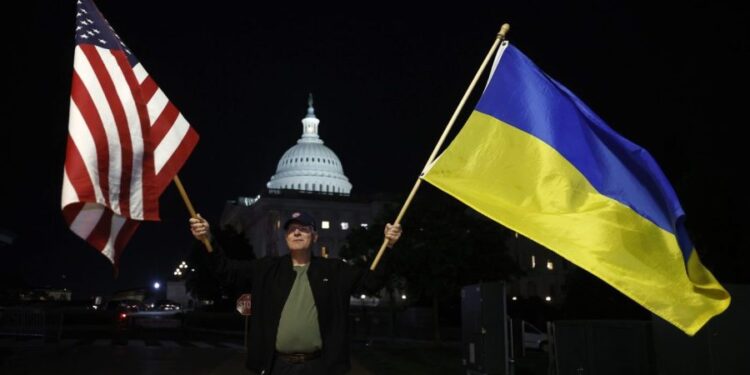
What is a “news” site in 2024? What is a “journalist?” In many cases, I can’t tell any longer.
In a nation and a world crying out for honest, non-biased investigative journalism, we are often getting “reporting” that either supports an ideology or political party, or continually attacks and smears people who hold different views. Goodbye independent reporting, and hello state-sanctioned propaganda.
Take the war in Ukraine, for instance. Just over a year ago, U.S. officials estimated that approximately 500,000 Russian and Ukrainian troops had been killed or wounded since the war started in February 2022. That number is likely now over 1 million. A casualty count that does not include in the tens of thousands of civilians killed and wounded in the conflict.
Over 1 million soldiers killed and wounded, along with thousands of innocent civilian men, women and children. Do you remember reading or hearing about that on your preferred news site? No? What you have heard mostly — especially from the media in the U.S. and the U.K. — is: “As Ukraine just reported…as Zelensky just told us…”
Members of the media are human. They do have personal biases. I get that they might “strongly oppose Vladimir Putin and Russia” or that they may actively hate former President Donald Trump. But the rules of their chosen profession declare that they must suppress their personal biases in favor of the facts on the ground. Does anyone truly believe that is happening?
Since the beginning of the war, far too many journalists and news sites have come across as cheerleaders for Ukraine. My question to them: Is that unprofessional activism helping the people of Ukraine — or, in reality, unintentionally delaying a cease-fire that would save countless lives and valuable infrastructure?
If the rationale for these activist journalists or news sites was to “save the people and infrastructure of Ukraine” then they don’t need me to inform them that they have failed miserably. However, if their true purpose was to “oppose” Putin while acting as surrogates for President Volodymyr Zelensky, then they must accept the (hopefully) unintended consequences of that deliberate strategy.
The two most disturbing of those consequences are that the governments of the U.S., the UK and other nations are seemingly using Ukraine and its men, women and children as cheap disposable pawns to be sacrificed in a proxy war against Putin and Russia. The second is that the continuation of this increasingly unpredictable war is leading us to the razor’s edge of World War III.
Here are some examples of questions our independent and professional media should be asking. Is Ukraine being used to fight such a proxy war? Are defense contractors in the U.S. and Europe using the war to test out new weapons systems while reaping tens of billions in profits? How many Ukrainians have actually been killed or wounded in the war? How many civilians? How many have fled the nation?
Next, are any of the officials in Ukraine corrupt? There was a great deal of reporting on that subject before the war, but there has been precious little since. On that subject, what is the true accounting of the billions of U.S. taxpayer dollars sent into that nation? How much as been stolen and by who? With the continual demonization of Russia and its people, are we pushing that nation deeper into the arms of China, Iran and North Korea?
To my concern that much of the media has abandoned its objectivity and professionalism when it comes to this war, I recently reached out to an editor at a major news site in Europe to ask about submitting a column raising some of these questions. I was told it would be a waste of time. I pushed back saying that it was an opinion piece for their opinion section. The answer I got back was that their “unofficial” position was that they were strongly opposed to Putin and Russia and would not entertain pieces that might put Ukraine or the prosecution of the war in a negative light.
Call that whatever you want, but it is not honest and ethical journalism.
Final questions for those journalists actively opposed to Putin or carrying water for Ukraine: With your non-reporting “reporting” or selective use of supplied “facts,” have you inadvertently prolonged the war by creating false narratives? How many soldiers and civilians are killed and wounded per day? With more accurate and honest reporting of the absolute horrors on the ground in Ukraine, might a cease-fire have been achieved earlier? If so, how many days, weeks or months ago?
Now, take the daily number of soldiers and civilians killed and wounded per day and multiply it with those time frames. Final question: Has biased reporting resulted in excess deaths in that war?
I look forward to the in-depth piece of investigate journalism that will seek to answer that question.
Douglas MacKinnon is a former White House and Pentagon official.







